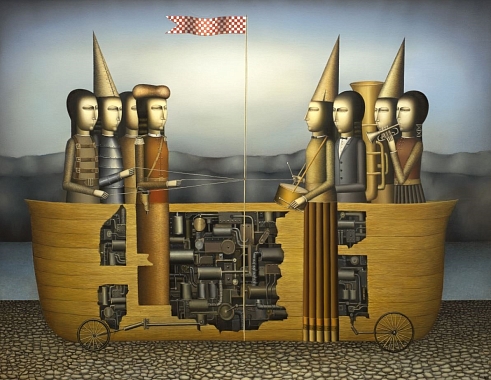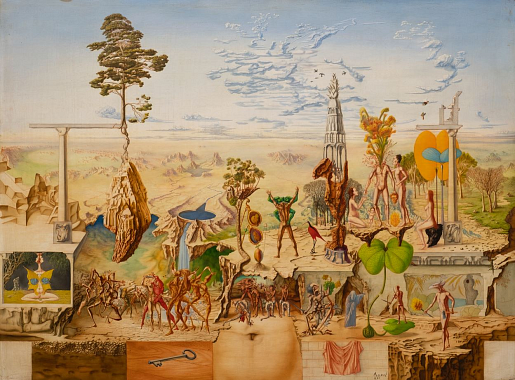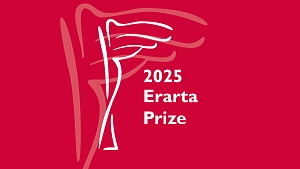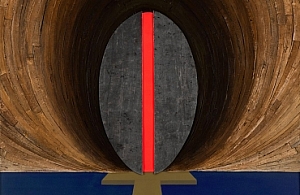The Polyphony of Absurd
The stage play "Christmas at the Ivanovs" was performed in an unusual manner, in the form of the director's explication by Boris Dragilev at Erarta.
Boris Dragilev played the part of the director, who talked about his stage play in front of his imaginary "troupe" which was the audience in the hall. As a result, we could see the solo performance, in which Boris Dragilev represented all characters of the play.
However, not only the unusual form of the play, but also the plot and ideas were interesting. "Christmas at the Ivanovs" is a polyphonic absurd drama by Alexander Vvedensky. Vvedensky was a friend of Daniil Kharms. Together with him Alexander created a literary and theatrical group called "Oberiu", the Association for Real Art. The main ideas of the group were primitivism and absurd. On the one hand, that art movement was shocking, but, on the other hand, that tendency expressed the absurdity and horror of the post-revolutionary years better than the others. It showed the time when people destroyed the state, family and moral foundations and stopped believing in God.
As Vvedensky said, he was interested only in three things: the time, God and death. The poet and playwright was arrested and sent into exile several times. In 1941 he was accused of anti-soviet agitation. Finally, he died in the camp.
"Christmas at the Ivanovs" was written by Vvedensky in the terrible times in Russia in 1938. The characters of the play are boys and girls aged between 1 to 82 years old. It shows the mad world. There is no logic. And everything seems possible. For example, a doctor who works in a psychiatric hospital thinks that he is a carpet. A dog speaks in verse. And a body speaks with its cut off head.
The authors of the play defined the genre as follows: "It is that kind of a comedy that it will be no laughing matter". "Life and death, good and evil, joy and sorrow are always together. Today everyone is happy, but tomorrow it can change, or vice versa. When people are faced with the concept of "death", they feel naturally sad. This feeling is what we are struggling with during the play", - Boris Dragilev said.
"I have seen many directors who tell their troupes of their future performance. This is a very interesting way to exist. The odeum is the troupe, and I play the part of the director of this troupe. I need to make the actors believe that this play is worthy and significant. It is like a game. And you never know who will win today..."
























